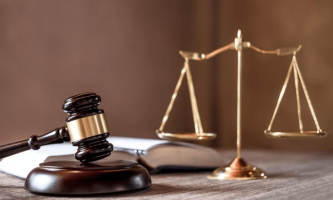Estate Planning Law: Expert Guidance for Your Future

Navigating the complexities of estate planning is an essential task that should not be overlooked. Many people are overwhelmed when considering how best to protect their assets and ensure their loved ones are provided for.
Estate planning lawyers provide valuable guidance in creating a comprehensive estate plan tailored to individual needs. This legal expertise helps demystify the process, ensuring every detail aligns with your personal and financial goals.
Our lawyer directory is an indispensable resource for those seeking qualified professionals to assist with estate planning. Various terminologies come with estate planning law, which might be difficult for the common people to understand. That is where these professionals come in.
By connecting you with experienced attorneys, we aim to simplify the initial research process. A consultation lets you discuss your unique circumstances, forming a foundation for a cohesive plan.
Understanding the role of estate planning lawyers is crucial to making informed decisions. We aim to bridge the gap between legal jargon and practical implementation. By doing so, we hope to empower individuals to take control of their future, safeguarding what matters most to them. Learn more about experienced estate planning lawyers.
Understanding Estate Planning Law and How To Plan It

Estate planning ensures that individuals’ wishes are respected and their assets are handled according to their desires. Various components, such as wills and trusts, are crucial in protecting assets and beneficiaries, while the guidance of the right lawyer is vital.
Importance of Creating an Estate Plan
Creating an estate plan is critical for managing our assets and personal affairs after we pass away. It prevents family disputes and reduces stress on loved ones by clearly outlining our intentions for asset distribution.
An estate plan may include a Will, a Living Trust, and a Durable Power of Attorney. These legally binding documents ensure our wishes are carried out. They help us specify who will inherit our assets, manage our finances, and make healthcare decisions if we become incapacitated. By proactively planning, we can avoid the lengthy and costly Probate process, where a court oversees the distribution of our estate.
Estate planning is not a one-size-fits-all task. Our unique financial and family situations may require specific legal structures or documents. Considering the guidance of an experienced Estate Planning Attorney is essential to tailor a plan that fits our individual needs.
Key Components of an Estate Plan
Key components in estate planning law provide a comprehensive framework to secure our assets and fulfill our wishes. A Will officially communicates how our assets will be distributed, while a Trust helps manage and protect these assets.
We might also consider creating a Living Will to outline our medical preferences if we cannot communicate our wishes. A Power of Attorney compliments that, allowing someone we trust to make decisions on our behalf.
A Durable Power of Attorney is suggested to safeguard the remaining in effect if we become incapacitated. By including these elements, we provide clarity and legal authority to manage our affairs efficiently.
Engaging with an Estate Planning Process helps to evaluate all these elements to ensure nothing is overlooked. This process aids in identifying the right legal tools that match our goals and family dynamics.
Selecting the Right Estate Planning Lawyer
Choosing the right estate planning lawyer is important for an effective estate plan. Having expertise will ensure that the plan is legally foolproof and will cater to our needs.
One should find someone with a deep understanding of trusts, wills, and the probate process and knowledge of state laws. However, asking for recommendations from our colleagues and friends is helpful. It will help us identify the best professionals in your area.
The chosen lawyer should listen carefully and communicate clearly. They should offer insightful legal advice and ensure that we understand what is going on with the plan. Connecting with a trustworthy one will secure our peace of mind. This way, we will know that the plan is being executed smoothly.
Implementing Your Estate Plan

We recognize the importance of thorough preparation in estate planning to safeguard our financial legacy and ensure our wishes are honored. Our focus includes managing our assets, health care decisions, and responsibilities toward family members while being mindful of state-specific legal and tax implications.
Gathering and Managing Assets
The first step in implementing an estate plan includes combining a comprehensive inventory. This includes bank accounts, real estate, retirement accounts, investments, business interests, and valuable personal property. We must organize this into a list and specify current valuations and ownership details.
Then, the next step is to decide how to allocate the assets among the beneficiaries. Use tools like trusts, wills, and beneficiary designations to streamline the process. This not only provides clarity but also helps us avoid probate court complications.
Regular reviews of beneficiary designs and asset lists are important to check whether there is a need for any changes in personal circumstances and ensure that the intentions are clear.
Planning for Incapacity and End-of-Life Decisions
We must prepare for the possibility of incapacity by powers of attorney and health care derivatives. The legal documents give authority to trusted individuals and allow them to make health care and financial decisions on our behalf when we fail to do it ourselves.
Advanced healthcare derivatives specify the preferences for any medical treatment and ensure the wishes are respected. Moreover, another power of attorney for finance lets someone we trust to deal with the finances, pay the bills, and oversee the investments during incapacity periods.
Regular discussions and updates with the appointed agents help maintain clarity and ensure that our decisions align with our current wishes.
Protecting Minor Children and Family Members
Designating guardianship is a critical element of estate planning law for those of us with minor children. We must choose guardians who share our values and can provide care and guidance in our absence. This decision requires careful reflection and, ideally, involving the intended guardians in our planning conversations.
It’s also important to address the financial needs of our children through trusts or other financial arrangements. Trusts can specify how funds will be managed and disbursed, ensuring our children’s needs are met. Additionally, clear designations of our chosen guardians and trustees in our will can prevent delays and disputes in probate court.
Addressing State Law and Taxes
State laws play a significant role in estate planning, impacting how our estate is distributed and taxed. We must understand and comply with these regulations to minimize potential disputes and unnecessary financial burdens on our beneficiaries.
Estate taxes, both at the federal and state levels, can substantially reduce the value of our estate. Strategizing with tools like lifetime gifting, charitable contributions, and marital deductions can optimize our tax planning.
Wrapping up!
It may be beneficial to consult with qualified estate planning professionals to effectively navigate these complexities of estate planning law. Regular reviews and updates to our estate plan can ensure ongoing compliance and alignment with evolving legal and tax landscapes.
This is going to help our loved ones figure out what is going to happen with the estate. Consult an attorney and be assured that everything will be taken care of. They will figure out a plan depending on our specific needs.
Additional Reading:













